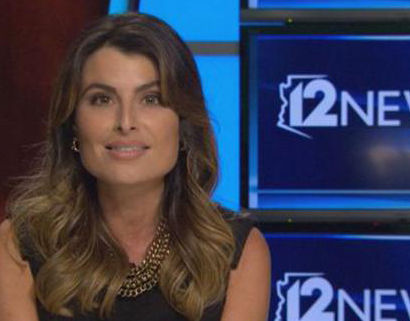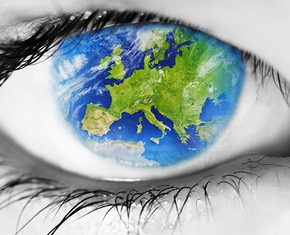The views expressed in our content reflect individual perspectives and do not represent the authoritative views of the Baha'i Faith.
Disheartened but not surprised—that’s how I felt when I read about the controversy surrounding Phoenix, Arizona’s Channel 12 television news anchor, Vanessa Ruiz. Some viewers, it seems, are unhappy with Ms. Ruiz’s pronunciation of Spanish words. She pronounces them in Spanish—now how odd is that?

New anchor Vanessa Ruiz
When I first visited Arizona many years ago, I noted that most of the people in the state anglicize the pronunciation of Casa Grande. I found it disappointing, because I’m a respecter of language, and feel each deserves to be pronounced as closely as possible to its original manner. It’s not an issue to me if people of a different ethnicity or culture don’t pronounce them correctly, but when I heard a Hispanic man say Casa Grande like the white folks do, I questioned him on it. He shrugged and said, “That’s the way they say it here,” as if his own culture and language didn’t count.
Even in high school, it bothered me that my Armenian friends, brothers named Kerop and Serop, chose to be called Bob and Bill in order to avoid being teased, or worse, harassed.
Persian friends shortened their surname from Eskandarzadeh, which is pronounced like it is written, to Eskandari, because people kept stumbling when trying to say their name.
I have Jewish relatives who changed their last names entirely, because those names caused them difficulties getting into university (about sixty years ago) and getting hired in their chosen field.
In Vietnamese-run nail salons, everyone has an English name. Why is it too much for their clients to call them by their given names?
I once had a co-worker with an obvious bias against Hispanics. He complained, “They can’t even pronounce Jesus’ name right.” When I replied that the pronunciation and even perhaps the name itself will vary from one country/language to another and that the way we say Jesus is anglicized, he became furious with me and refused to accept that the way we pronounce Jesus in the U.S. wasn’t the original version of Christ’s given name.
And I have to wonder why, as I’ve witnessed, do some Americans who want everyone who lives or visits our country to speak English and pronounce it correctly, insist that people in countries to which they travel speak English to them?
I appreciate this advice, which works both ways, for the minority and the majority:
Constructive consultation is possible only when both minorities and majorities renounce their stubborn clinging to long-standing and misguided attitudes of superiority and condescension; to ancient grievances, however justifiable their origins; and to extreme parochial attachments that represent a perversion of the sane and intelligent pride that all groups rightfully feel towards their particular culture. Minorities and majorities must embrace an expansive view of world society that sees all human beings as members of one human family, united in their fundamental aspirations, yet enriched by the precious variation in human thought, language, religion and culture. The development of such a universal and unshakable consciousness of the oneness of mankind is essential if the rights of minorities are to be fully realized. – Baha’i International Community, Rights of Minorities, February 1992.
When the concept of the oneness of humanity is accepted, truly, these problems disappear. Abdu’l-Baha put it this way:
The most urgent requisite of mankind is the declaration of the oneness of the world of humanity – this is the great principle of Baha’u’llah. That which will leaven the human world is a love that will insure the abandonment of pride, oppression and hatred. – Abdu’l-Baha, Divine Philosophy, p. 45.
We all can become examples of that love for humanity by encouraging people to respect and honor their ancestral cultures in addition to that of their country of residence.
The TV news anchor Ms. Ruiz, in responding to her critics, said, “Let me be clear: My intention has never been to be disrespectful or dismissive, quite the contrary. I actually feel I am paying respect to the way some of Arizona’s first, original settlers intended for some things to be said.”
In the September 3, 2015 article, Arizona News Anchor Is Drawn Into Debate on Her Accent and the Use of Spanish, which appeared on nytimes.com, authors Fernanda Santos and Christine Hauser quoted from a Facebook post by Ms. Ruiz:
“’My comments about some of your inquiries were made out of respect and acknowledgment for some of those who watch us and wondered why I pronounced certain things a certain way in Spanish,’ she wrote. ’I was more than happy to explain and/or clarify. Nothing more.’”
“She added: ’I am more proud now than ever to be an American, and also, a Latina. Thank you. Gracias.’”
To Ms. Ruiz, I gratefully respond, “De nada.”
















Comments
Sign in or create an account
Continue with Googleor